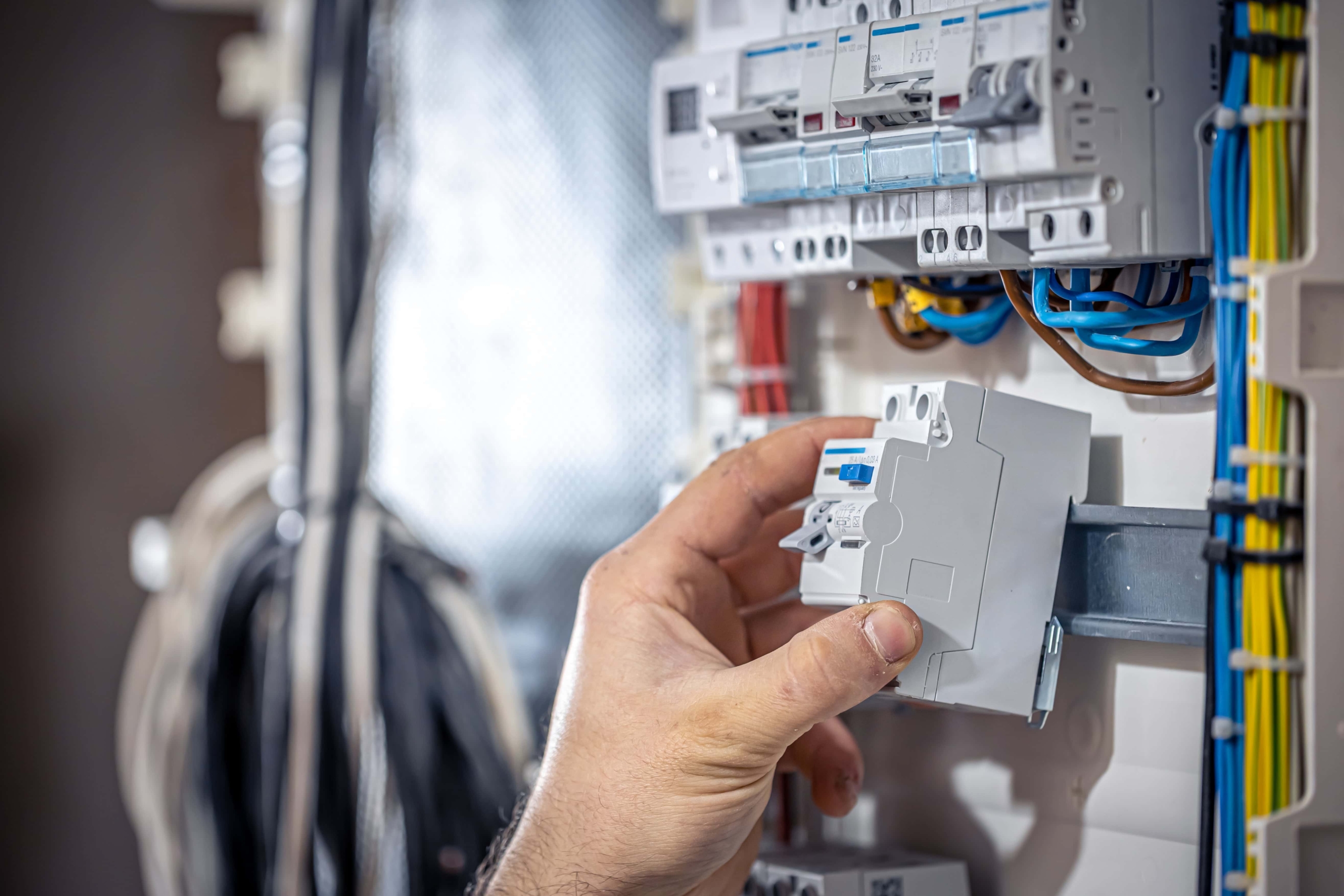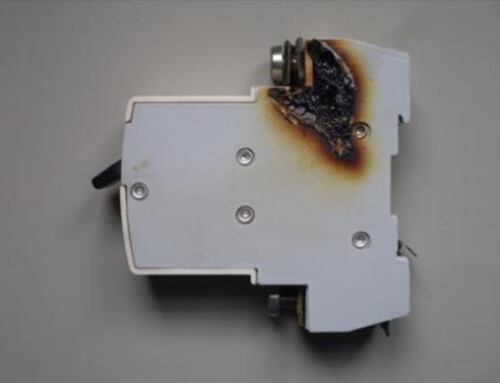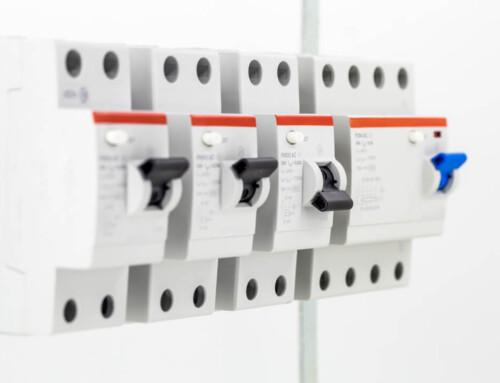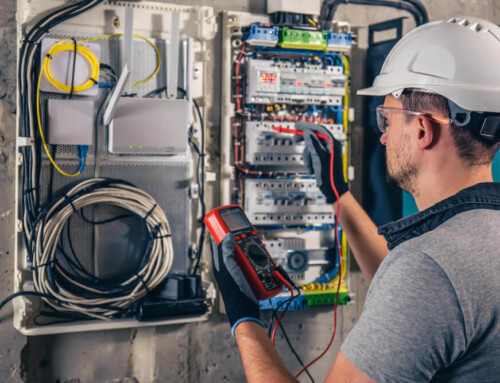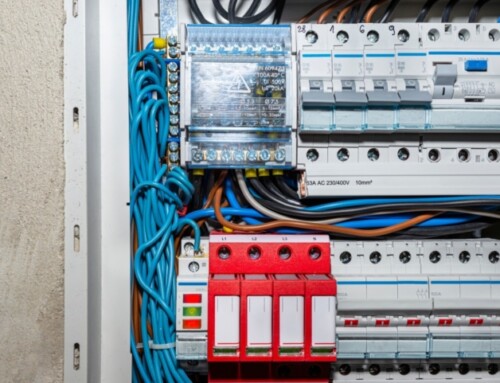Table of Contents
Have you ever heard a strange buzzing sound coming from your electrical panel? Yeah, that’s not something to ignore. A buzzing circuit breaker isn’t just an odd noise. It could be a warning sign that something’s off in your system.
Circuit breakers are made to trip or turn off when an excessive amount of current passes through them. Occasionally, however, they begin to buzz rather than trip. Usually, that sound indicates that electricity is flowing improperly.
While it’s not always an emergency, it’s one of those things you want to look into before it turns into a bigger (and possibly dangerous) problem. Let’s break down why a circuit breaker makes a buzzing sound and what you can do to fix it without panicking.
When is the Buzzing Sound Normal, and When Should You Worry?
A faint buzzing or humming sound from your circuit breaker isn’t always a red flag. But circuit breakers buzzing loudly, suddenly, or persistently could signal something more serious. Knowing the difference between normal and abnormal sounds can help you catch electrical issues early and stay safe.
Normal Sounds
It’s probably fine if:
- The noise is very quiet and only happens when a big appliance turns on.
- It goes away in a few seconds.
Abnormal Sounds
You should be concerned if:
- The buzzing is constant, even when nothing major is running.
- It’s getting louder over time.
- You hear crackling, sizzling, or popping
- You notice flickering lights, burning smells, or warm outlets nearby.
If any of those red flags sound familiar, skip the DIY for now and call a licensed electrician.
Why is Your Circuit Breaker Buzzing?
From loose wiring to overloaded circuits, several issues could be behind the noise. Understanding the common causes can help you figure out what’s going on and what to do next. So, what causes that annoying buzz? It’s usually one of these:
1. Unsecured Wiring
Over time, wires may become loose, particularly if your panel is a few years (or decades) old. The electricity may then arc or leap between connections, producing a sizzling or buzzing sound. Simply put, this is a fire hazard. Don’t disregard it.
2. Overloaded Circuits
Do you have numerous devices connected to the same outlet? Your breaker may be overloaded. It may buzz as it tries to meet the demand rather than tripping immediately. To find out if this is the reason your circuit breaker is making a buzzing noise, try unplugging a few gadgets. Also, avoid using too many powerful devices on a single circuit.
3. The Breaker is Broken
Like everything else, breakers eventually wear out. It may be a bad breaker if it buzzes and fails to trip when it should or if it trips frequently without cause. Although replacing circuit breaker isn’t costly, they are crucial. It’s better to replace it now rather than wait for it to break entirely.
4. An Outdated Electrical Panel
Panels in older homes are frequently not certified for contemporary electrical use. Even though there isn’t anything “wrong,” if your panel is old, the breakers could be constantly stressed. It could be a good idea to discuss an upgrade with an expert at this time.
5. Breaker Can’t Trip Properly
Sometimes, the breaker is overloaded but can’t trip like it should. Instead of shutting off the circuit, it just buzzes. That means it’s trying to stop the power from flowing but isn’t doing its job. That’s definitely not something you want to leave alone.
How to Fix a Buzzing Circuit Breaker Box (Safely)
Let’s be real! Working inside an electrical panel isn’t for everyone. And in a lot of cases, it’s better to call in an electrician. However, you can do the following in your limited capacity:
Step 1: Turn Off the Power (If You Can)
If you feel comfortable doing it safely, shut off the main breaker. This cuts power to the whole house, so you are not poking around live wires.
Step 2: Listen & Observe
Open the panel (again, only if you know how to do this safely) and try to pinpoint which breaker is making the noise. Don’t touch anything unless you’ve cut the power.
Step 3: Check for Overload
If you’ve been running space heaters, hair dryers, or a microwave all on the same circuit, you may just be overloading it. Try unplugging a few things and resetting the breaker.
Step 4: Replace the Breaker
Still buzzing? Then, the breaker might be faulty. Replacing it isn’t rocket science, but if you’ve never worked inside a panel before, leave it to a professional.
Step 5: Call an Electrician
Seriously. If there’s any uncertainty or if you smell something burning, hear crackling, or the panel is hot, shut everything down and make the call.
How to Prevent Breaker Issues in the First Place
Here are a few habits that can keep your electrical system running smoothly (and quietly):
- Don’t overload outlets. Spread out your devices across circuits.
- Check panels periodically. If your breakers are hot or discolored, something’s wrong.
- Hire licensed electricians for installations, upgrades, or major changes.
- Upgrade your panel if it’s older than 30–40 years.
Label your breakers. It makes it easier to find the source of an issue when something starts buzzing.
D&F Liquidators offers you breakers, panels, and wiring components to help you find the right parts.
Quick FAQs
1. How should I respond to a buzzing circuit breaker?
Turning off the electricity and checking the panel for loose connections or obvious damage should be your first step if your circuit breaker is buzzing. Hire a qualified electrician if the issue continues.
2. Can a buzzing breaker start a fire?
Indeed, if the underlying problem, such as an overload or short circuit, is not quickly fixed, a buzzing breaker may start a fire.
3. How much does a circuit breaker replacement cost?
A circuit breaker replacement might cost anywhere from $150 to $250, including labor and parts. Complex problems could be more expensive.
4. Is it normal for the circuit breaker to make a buzzing noise?
A circuit breaker should produce no noise. Sounds that buzz or hum suggest an issue that needs to be looked into and fixed.
5. How frequently do circuit breakers need to be examined?
As part of routine home maintenance, circuit breakers should be examined at least once a year to make sure they are operating securely and correctly.
To conclude, a buzzing circuit breaker isn’t something to take lightly, but it’s also not something to panic about. Most of the time, it’s a sign your system needs a little attention, whether that’s fixing a loose wire or replacing an old breaker.
If you are not sure what’s going on, or you are just not comfortable dealing with electrical stuff, don’t guess. Give a licensed electrician a call and let them sort it out.

